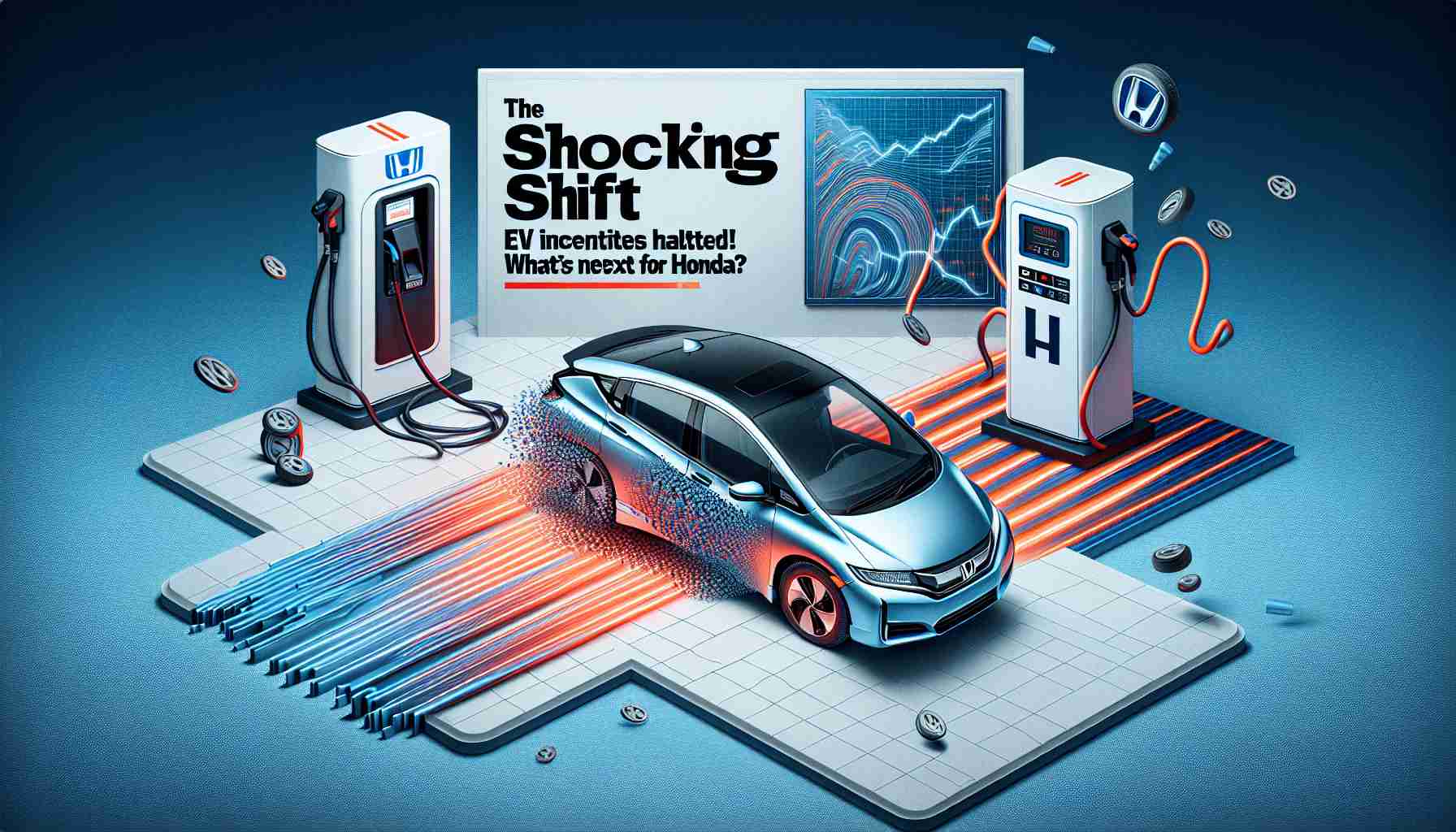The landscape of electric vehicle (EV) incentives in Canada has dramatically changed.
On January 13, the Canadian federal government announced an immediate halt to its electric vehicle incentive program, which previously provided up to $5,000 in rebates for Canadians buying or leasing EVs. The program, known as the Incentives for Zero-Emission Vehicles (iZEV), is now paused due to all available funds being allocated. Since its inception in 2019, approximately 546,000 electric vehicles have been sold with the help of these incentives. Originally, this program was set to cease in March 2025, but the abrupt suspension has left many potential buyers and manufacturers surprised.
In another significant development, Honda is taking a measured approach regarding its plans for an EV battery production facility in Canada. Noriya Kaihara, Honda’s Executive Vice President, expressed that the company must navigate cautiously, especially in light of policies from the U.S. government that could impact production timelines. There are discussions of potentially delaying the rollout of Honda’s new EV models as the company reassesses its strategy.
Though the company unveiled its innovative ‘Honda 0’ electric vehicle lineup at CES in Las Vegas, which is slated to enter the North American market in 2026, uncertainty looms over future production plans. Currently, Honda’s shares are showing a slight increase, with trading at CAD$13.63.
The Broader Implications of the Recent Changes in EV Incentives in Canada
The halt of the electric vehicle incentive program in Canada signifies a pivotal shift in the nation’s environmental policies and its commitment to reducing carbon emissions. The subsidies had previously catalyzed the sale of over half a million electric vehicles, reflecting a growing consumer awareness of climate change and the need for sustainable transportation options. This sudden pause may lead to a notable dissonance between governmental policy and consumer behavior, potentially stunting the momentum towards a greener economy.
This development not only affects the Canadian market but also resonates on a global scale. As countries increasingly emphasize clean energy solutions, Canada’s decision might hinder its competitive edge in the burgeoning electric vehicle market. The transition towards electrification is critical for mitigating climate change, and such abrupt policy shifts can raise concerns about the long-term vision and stability of Canada’s investment in clean technology.
From an environmental perspective, the immediate impact of reduced incentives may slow the adoption of electric vehicles, thereby prolonging reliance on fossil fuels. This could further exacerbate carbon emissions and delay Canada’s targets for net-zero emissions by 2050.
In the context of future trends, automakers like Honda might reconsider their investments in North America, influenced by increasing uncertainty. With a strong push for innovation in EV technologies worldwide, Canada must reaffirm its position to remain aligned with these advancements, lest it risk being left behind as other nations accelerate their EV initiatives.
Canada’s EV Incentives: What You Need to Know Post-Suspension
The recent suspension of Canada’s electric vehicle incentive program, known as the Incentives for Zero-Emission Vehicles (iZEV), has raised eyebrows among consumers and industry stakeholders alike. Initially offering up to $5,000 in rebates for electric vehicle (EV) purchases or leases, the program was halted on January 13, 2023, leaving many potential buyers in a lurch. With all allocated funds reportedly exhausted, this abrupt change has substantial implications for both EV sales and the automotive industry.
Overview of the iZEV Program
The iZEV program was established in 2019 with the aim of promoting the adoption of electric vehicles. Over the past few years, it has contributed to the sale of approximately 546,000 EVs, demonstrating its effectiveness in boosting the market. However, the sudden suspension has disrupted plans for many who were counting on these incentives to make EV ownership more feasible.
Impact on Future EV Purchases
The discontinuation of the iZEV program raises several important questions for Canadian consumers:
1. How does the suspension impact EV pricing?
– With the loss of government support, potential buyers may find EVs less affordable, leading to a possible decline in sales.
2. Will other incentive programs emerge?
– While the federal program is paused, provincial and municipal programs may still provide some level of support. Buyers should explore localized initiatives that could cushion the financial impact.
Manufacturer Reactions: Honda’s Cautious Approach
In response to the changing landscape, manufacturers like Honda are taking a step back. The company’s Executive Vice President, Noriya Kaihara, highlighted the need for a careful reassessment of strategies amid uncertainty regarding U.S. policies that directly affect production schedules. Honda’s plans for establishing an EV battery production facility in Canada face potential delays, which could affect the rollout of its new EV models.
Honda’s Electric Vehicle Lineup
Despite the uncertainty surrounding production, Honda recently showcased its ambitious ‘Honda 0’ electric vehicle lineup at CES 2023 in Las Vegas. This innovative range is expected to enter the North American market by 2026, underscoring Honda’s commitment to transitioning to electric mobility. However, the path ahead remains contingent upon a stable policy environment and reliable production timelines.
What’s Next for Canadian EV Buyers?
As federal incentives wane, prospective EV buyers should consider:
– Exploring alternative funding: Look for regional incentives and promotions offered by dealerships.
– Evaluating total cost of ownership: With fluctuating gas prices and growing EV infrastructure, consider the long-term financial benefits of owning an electric vehicle.
– Monitoring market trends: Stay updated on governmental policies and timelines for potential reinstatement of incentives as the political landscape evolves.
Conclusion
The future of electric vehicles in Canada is at a crossroads. With the pause in federal incentives, manufacturers like Honda are recalibrating their strategies, leaving consumers to navigate a changing marketplace. Understanding the nuances of this situation is crucial for anyone considering the switch to an electric vehicle.
For more on EV developments and incentives, visit Canada.ca.













